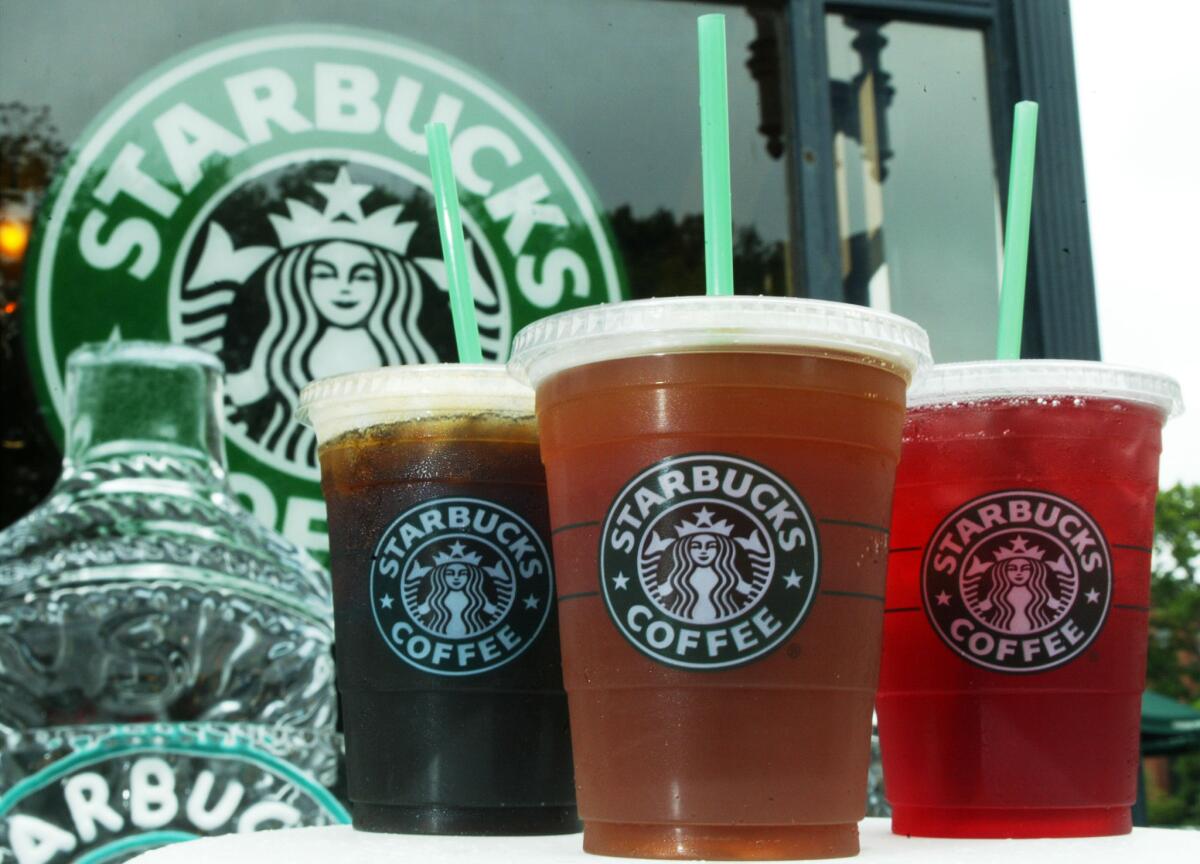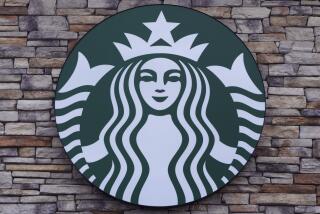Starbucks pushes hard into tea with $620-million Teavana buy

- Share via
Starbucks Coffee Co. will buy Teavana Holdings Inc. for $620 million in cash as the coffee giant powers deeper into the tea market.
The $15.50-a-share price is lower than the $17 a share at which Teavana was priced for its public debut last July. The stock opened at $28.95 a share but has since slumped heavily to close at $10.13 a share Tuesday.
But after Starbucks’ afternoon announcement Wednesday, Teavana shares surged as much as 59% to $16.06 a share.
Starbucks said it plans to expand Teavana’s existing 300 mall-based stores while adding a “high-profile neighborhood store concept.” The tea company was attractive, Starbucks executives said, because of its industry expertise and global sourcing network.
Atlanta, Ga.-based Teavana was founded in 1997 and offers more than 100 kinds of premium loose-leaf teas, artisanal tea equipment and other merchandise.
The global tea industry is valued at $40 billion and is growing fast, according to Starbucks.
The Seattle cafe company already owns Tazo Tea -- a brand now worth $1.4 billion -- which Starbucks picked up in 1999. Teavana “complements Tazo,” said Starbucks Chief Executive Howard Schultz in a blog post.
The Teavana deal is a “signal that we have moved our plan to fundamentally transform the consumer tea experience in both North American and international markets into high gear,” Schultz said.
Starbucks has also begun to expand heavily into the juice market, announcing plans to grow its Evolution Fresh chain of stores into California in the fall.
In June, Starbucks also said it would open its first standalone tea shop, operating under the Tazo brand, near the company’s Seattle headquarters.
ALSO:
Starbucks opens first store in tea-centric India
Starbucks to open first Tazo tea shop in Washington
Starbucks to open first Evolution Fresh juice store in California
More to Read
Inside the business of entertainment
The Wide Shot brings you news, analysis and insights on everything from streaming wars to production — and what it all means for the future.
You may occasionally receive promotional content from the Los Angeles Times.











